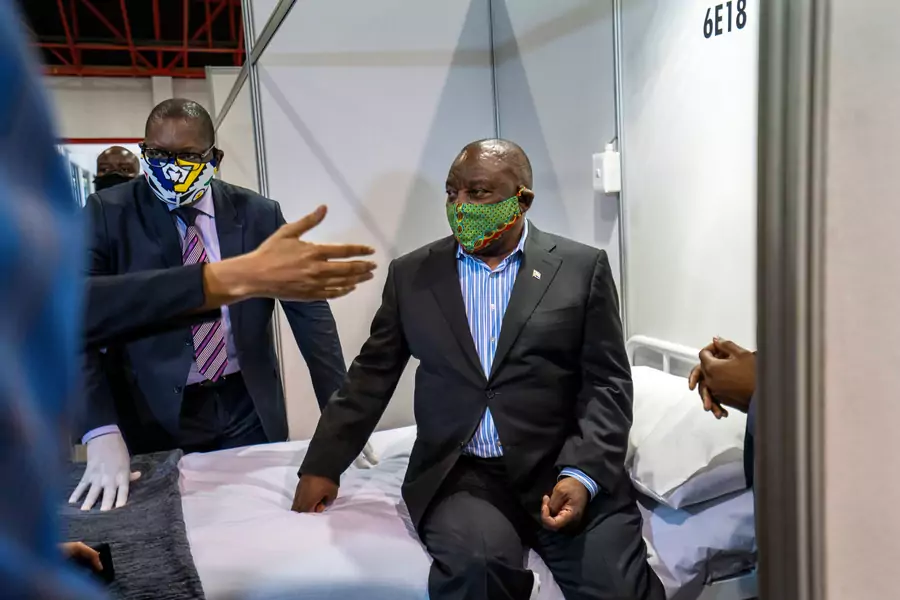President Ramaphosa Tries to Thread the Needle on COVID-19 in South Africa

As president of South Africa and head of the ruling African National Congress, Cyril Ramaphosa seeks to restore South Africa's economy and consolidate his position within the party. He still faces opposition from supporters of ousted President Jacob Zuma, regarded by outside observers as a corrupt facilitator of and participant in state capture. The coronavirus looks to be an economic disaster for the country, but it does provide the opportunity for the president to demonstrate his leadership. In short, the political space in which he is operating in is particularly complex. For many, the question is how is Ramaphosa doing?
As of May 28, there were almost 26,000 cumulative confirmed coronavirus cases in South Africa, out of a total of about 125,000 in Africa. While the South African statistics are credible—they have conducted over 600,000 tests—those for much of the rest of Africa are less so. It is likely that other countries have a greater number of unreported cases.
More on:
Initially, Cyril Ramaphosa established an anti-virus regime that is now familiar in the developed world: social distancing and a lockdown. And the virus "curve" indeed appeared to flatten. More recently, however, he has come under criticism. The messaging of his government—especially about the reopening sequencing—has been inconsistent. Some of the regulations, particularly the bans on alcohol and tobacco, have caused resentment and had not been adequately explained. Though there were compelling reasons for the bans, there is now a flourishing black market in both commodities. Worse, perhaps has been police brutality in enforcing the lockdown, and some police now face charges in court. According to the National Police Minister, 230,000 South Africans have been arrested for breaking the lockdown regulations. So, Ramaphosa has to thread the needle, to keep in place regimes that seem to work with an increasingly restive population. As in other countries, Ramaphosa is gradually reducing lockdown restrictions. For example, as of June 1, churches may reopen, but with only fifty worshippers at a time.
Again as elsewhere, the South African government has failed adequately to take into account the consequences of the lockdown on the poorest of the poor, for whom social distancing is largely impractical, and where their work is largely face-to-face. Further, if they do not work, they do not eat. The South African government has increased the social allowance drawn by the poor, but, critics would say, not by enough.
As to how Ramaphosa is doing, the jury is still out. He gets good international press, and international health experts applauded his lockdown and its strict enforcement. On balance, he does appear to be threading the needle. This real issue is how South Africans will perceive his leadership.
More on:
 Online Store
Online Store